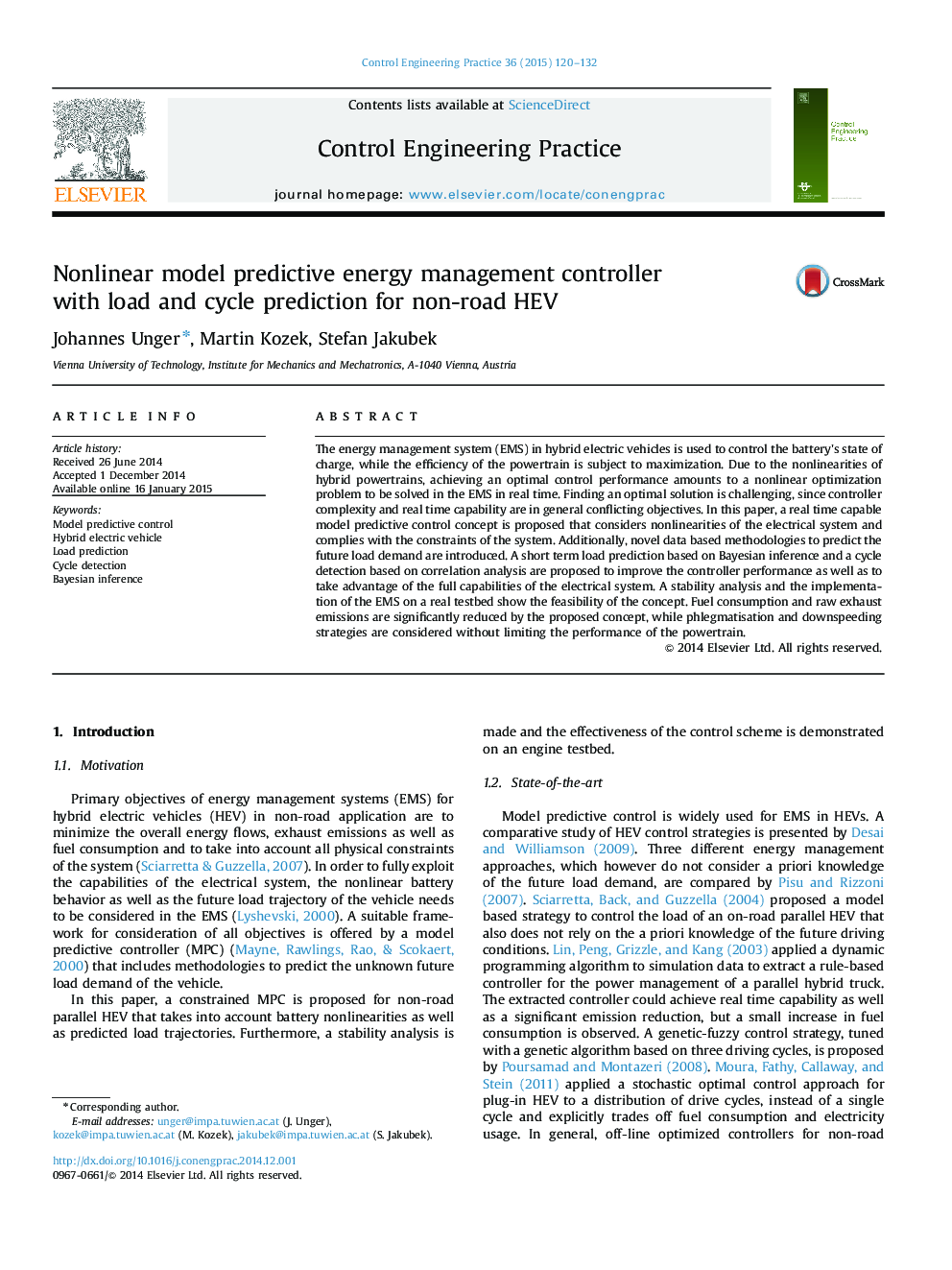| Article ID | Journal | Published Year | Pages | File Type |
|---|---|---|---|---|
| 699295 | Control Engineering Practice | 2015 | 13 Pages |
•A model predictive energy management controller is presented for non-road HEV.•The nonlinear battery characteristics are considered in the control concept.•Bayesian inference is used for data based short term load trajectory prediction.•Correlation analysis is applied on the past load values to detect recurrent cycles.•A stability analysis and real testbed measurements demonstrate the concept.
The energy management system (EMS) in hybrid electric vehicles is used to control the battery׳s state of charge, while the efficiency of the powertrain is subject to maximization. Due to the nonlinearities of hybrid powertrains, achieving an optimal control performance amounts to a nonlinear optimization problem to be solved in the EMS in real time. Finding an optimal solution is challenging, since controller complexity and real time capability are in general conflicting objectives. In this paper, a real time capable model predictive control concept is proposed that considers nonlinearities of the electrical system and complies with the constraints of the system. Additionally, novel data based methodologies to predict the future load demand are introduced. A short term load prediction based on Bayesian inference and a cycle detection based on correlation analysis are proposed to improve the controller performance as well as to take advantage of the full capabilities of the electrical system. A stability analysis and the implementation of the EMS on a real testbed show the feasibility of the concept. Fuel consumption and raw exhaust emissions are significantly reduced by the proposed concept, while phlegmatisation and downspeeding strategies are considered without limiting the performance of the powertrain.
